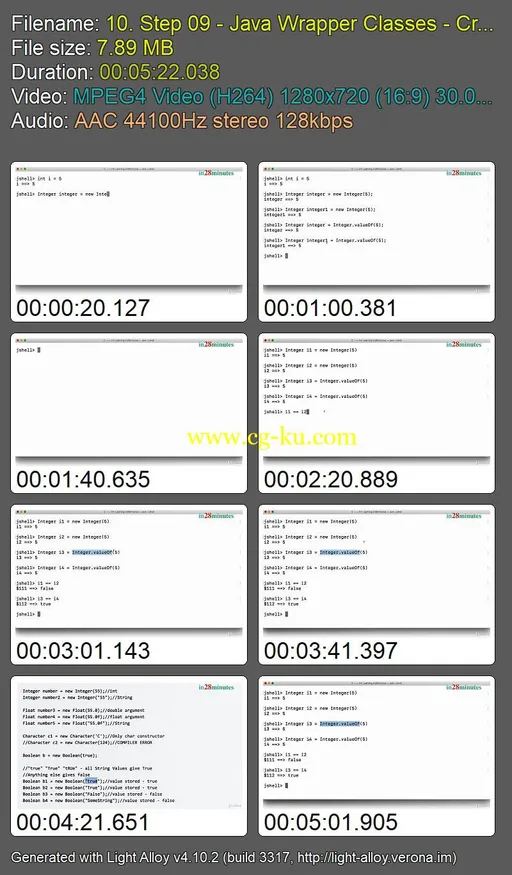Duration: 25 h 46 m | Video: H264 1280×720 | Audio: AAC 44,1 kHz 2ch | 2,81 GB | Language: English + .vtt | 2019Start Learning Java Programming Step By Step with 200+ code examples. 250 Amazing Steps For Absolute Java Beginners!Java is one of the most popular programming languages.
Java offers both object oriented and functional programming features.
We take an hands-on approach using a combination of JShell and Eclipse as an IDE to illustrate more than 200 Java Coding Exercises, Puzzles and Code Examples.
This course assumes no previous ( beginner ) programming or Java experience.
If you’ve never programmed a computer before, or if you already have experience with another programming language and want to quickly learn Java, this is a perfect course for you.
In more than 250 Steps, we explore the most important Java Programming Language Features• Basics of Java Programming – Expressions, Variables and Printing Output• Java Operators – Java Assignment Operator, Relational and Logical Operators, Short Circuit Operators• Java Conditionals and If Statement• Methods – Parameters, Arguments and Return Values• Object Oriented Programming – Class, Object, State and Behavior• Basics of OOPS – Encapsulation, Abstraction, Inheritance and Polymorphism• Basics about Java Data Types – Casting, Operators and More• Java Built in Classes – BigDecimal, String, Java Wrapper Classes• Conditionals with Java – If Else Statement, Nested If Else, Java Switch Statement, Java Ternary Operator• Loops – For Loop, While Loop in Java, Do While Loop, Break and Continue• Immutablity of Java Wrapper Classes, String and BigDecimal• Java Dates – Introduction to LocalDate, LocalTime and LocalDateTime• Java Array and ArrayList – Java String Arrays, Arrays of Objects, Primitive Data Types, toString and Exceptions• Introduction to Variable Arguments• Basics of Designing a Class – Class, Object, State and Behavior.
Deciding State and Constructors.
• Understanding Object Composition and Inheritance• Java Abstract Class and Interfaces.
Introduction to Polymorphism.
• Java Collections – List Interface(ArrayList, LinkedList and Vector), Set Interface (HashSet, LinkedHashSet and TreeSet), Queue Interface (PriorityQueue) and Map Interface (HashMap, HashTable, LinkedHashMap and TreeMap() – Compare, Contrast and Choose• Generics – Why do we need Generics? Restrictions with extends and Generic Methods, WildCards – Upper Bound and Lower Bound.
• Functional Programming – Lambda Expression, Stream and Operations on a Stream (Intermediate Operations – Sort, Distinct, Filter, Map and Terminal Operations – max, min, collect to List), Functional Interfaces – Predicate Interface,Consumer Interface, Function Inteface for Mapping, Method References – static and instance methods• Introduction to Threads and MultiThreading – Need for Threads• Implementing Threads – Extending Thread Class and Implementing Runnable Interface• States of a Thread and Communication between Threads• Introduction to Executor Service – Customizing number of Active Threads. Returning a Future, invokeAll and invokeAny• Introduction to Exception Handling – Your Thought Process during Exception Handling.
try, catch and finally.
Exception Hierarchy – Checked Exceptions vs Unchecked Exceptions.
Throwing an Exception.
• Creating and Throwing a Custom Exception – CurrenciesDoNotMatchException.
Try with Resources – New Feature in Java 7.
• List files and folders in Directory with Files list method, File walk method and find methods.
Read and write from a File.

